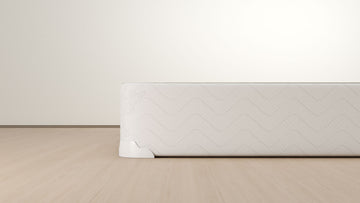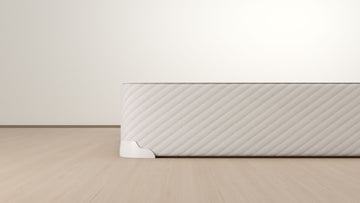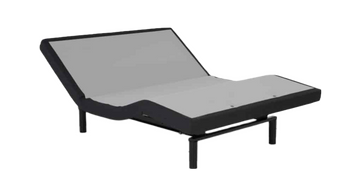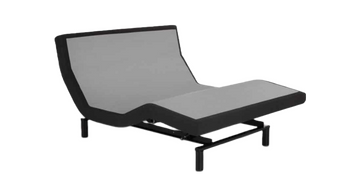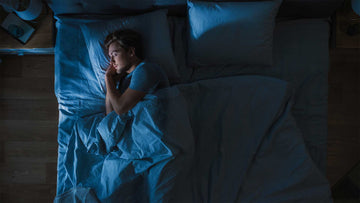The different sleep positions, and the pros and cons offered by each, are commonly discussed topics within the sleep community. However, have you ever considered how the direction in which you sleep may impact you?
This is a focus within Feng Shui, which is the art of balancing nature and the environment to promote a clear energy flow throughout your house. Your house is not the only thing that can benefit from the energy flow, though, with your body, as a natural being, seeking a balance of energies. This often converges in the bedroom, where you and your environment intermingle heavily as your body rests, repairs, and prepares for the next day. If you are not balanced while doing this, though, your sleep can be disturbed, leaving you tired and ill-equipped to live a fulfilling life.
Energy Balance in Sleep
While Feng Shui primarily focuses on how the furniture in a home is placed, the Indian tradition of Vastu Shastra is often considered Feng Shui for sleep direction, focusing on the best direction to sleep to promote internal energy balance.
Vastu emphasizes aligning your sleep direction with the magnetic pull of the earth. This is because, as beings full of energy and surrounded by energy, we can see significant benefits when promoting a balance in energy flow between our bodies and our environment.
The Different Sleep Directions
Let’s look at how sleeping in each direction may affect your health. For this section, it will be the head-facing direction that is in consideration. For example, when we say east-facing, we mean that the head is pointing east, and the feet are pointing west.
East-Facing Sleep
One of the more favorable directions for sleeping is east, as it increases memory and concentration while promoting quality and refreshing sleep. In the tradition of Vastu, east-facing sleep is a tremendous source of power that allows you to solve inner conflicts.
North-Facing Sleep
North-facing sleep can often cause bad nights of sleep because it places your positively charged head in the direction of the positively charged North Pole. This then disrupts blood circulation, which can cause stress and illness. Additionally, insomnia, nightmares, and other sleep disorders can also be more likely when north-facing.
However, one benefit associated with north-facing sleep is assistance in lucid dreaming. If this is your goal, this sleep direction is best.
West-Facing Sleep
While east-facing sleep is more favorable, west-facing sleep offers some benefits, primarily for those striving for wealth and fame. However, this sleep direction is often less well-received than east-facing sleep, and in Vastu, guest bedrooms often have a west-facing bed to cause a night of restless sleep and discourage a guest from overstaying their welcome.
South-Facing Sleep
Yet another favorable sleeping direction is facing south, which helps to promote deep sleep and allows for energy to pour into the body, leaving you with a restful sleep.
The Best Sleeping Direction
For those considering which way to align your bed, Vastu typically considers the south as the best sleeping direction. To adhere to this direction, you will want to sleep so that your head is pointed south, and your feet pointed north.
We are not the only ones to benefit from facing the south, with research finding that animals such as deer and cattle naturally align their bodies in the south/north direction when they are resting or eating.
Other research on humans has shown effects in sleep EEG signals based on bed direction, with the north/south direction offering more benefits than east/west.
This is expected to occur because south-facing sleep places your body in balance with the magnetic signals of the earth. Your head is the north pole of your body, which is why it is positively charged. When you sleep facing the south, your “north pole” aligns with the earth’s south pole, allowing the opposite poles to attract.
This is compared to sleeping north facing, where your body’s north pole clashes with the earth’s north pole, leading to poor sleep. Research has even shown that those who sleep facing north take longer to enter rapid eye movement (REM) sleep, which is crucial for emotional well-being, cognitive functioning, and overall health.
Other Sleeping Directions
While the south is typically considered the best sleeping position and the north the worst, what about the east and west?
Within the same study as above, the researchers found that those sleeping facing east entered REM sleep earlier than those facing north. Those facing east still saw less overall sleep, though, so the benefits and cons of the east and west-facing sleep may cancel each other out.
So, while you can sleep in other directions, Vastu recommends facing the south as it allows your body to achieve balance.
Additional Sleep Recommendations
In addition to sleep direction, Feng Shui offers other benefits for promoting balance and creating a more restful sleep.
With Feng Shui, you want to place your bed directly against a wall but not underneath any windows. In the ideal scenario, you want to put it on the wall opposite your bedroom door.
Removing clutter and electronics are also important steps in Feng Shui, as they can mess with your chi. By eliminating clutter, you have more space for good energy to enter, which may improve your emotional state. Electronics may also interfere with electromagnetic field effects, which is yet another reason to keep them out of the bedroom.
Different Sleep Directions Overview
In addition to your bed, sheets, and sleeping position, you can now add sleeping direction to your list of considerations for promoting a good night of sleep.
Drawing upon the ideas of Feng Shui, Vastu focuses on sleep positioning to encourage balance within your body and the earth’s magnetic field, leading to a more restful night of sleep. If you struggle to fall asleep or wake up still tired, try facing the south while you sleep and see if you wake up feeling more refreshed.



